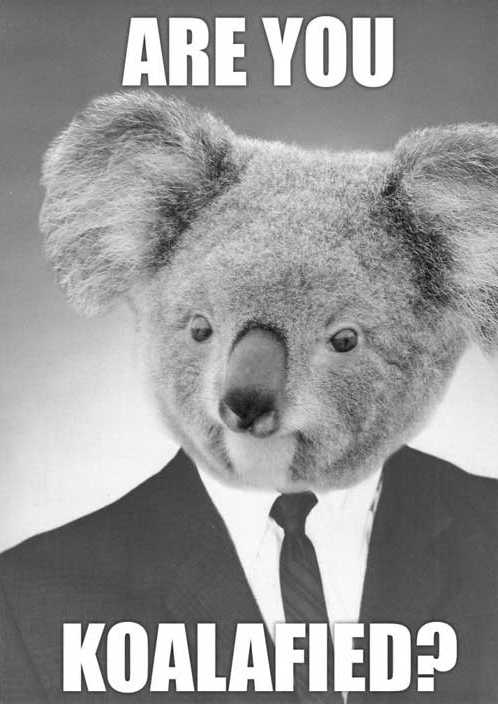You’ve found the job of your dreams and you got yourself an interview. We’ve all felt the stomach-churning mix of excitement coupled with terror when that coveted interview is circled in red on the calendar. Take a moment to review our Top 5 Job Interview Tips to help turn that interview into your new job.

Tip #1:
Know the company.
Knowing as much as you can about the company you’re interviewing for is an invaluable tool and can give you a leg up as far as understanding what they might be looking for in a potential new employee. Visit the company website to familiarize yourself with how the company views itself, its mission statement and history as well as specific products and services. Glassdoor.com can provide a ton of company-specific information, much of it from people with first-hand experience there. Even social media such as Facebook and Twitter can provide insights into a company you might otherwise not have access to. Many interviews begin with a general ‘So, what do you know about our company?’ and you want to be able to wow them with your knowledge, foresight and interest.
Tag-a-long Tip: Be sure you understand – at least to some degree – what the specific job you’re interviewing for entails. It might sound obvious, but having knowledge of the position itself allows you to tailor your answers to highlight your most relevant skills. This can be a critical preparation.
Tip #2:
Practice, Plan, and Practice Some More.
Having some idea of what questions might be asked and planning how best to answer to ensure that your particular skill set shines through makes a big difference and keeps the look of panic off your face. You don’t want to come across as scripted, but having some key thoughts prepared and at the ready should allow you to relax and your abilities to shine. Go over some hypothetical replies out loud when you’re in the car or otherwise alone so you can get comfortable with how you might answer.
Some common interview questions to be prepared to answer:
- What did you like or dislike about your previous job?
- What is your greatest strength? Greatest weakness?
- Describe a difficult work situation and how did you handle it?
- Tell me about yourself
- Why should we hire you?
Tag-A-Long Tip: Be prepared for an interview from the moment you’re ready to make contact with a company. Your very first call could lead to an immediate phone interview or pre-screening, so review your resume and have some responses ready.
Tip #3:
Know your resume.
It’s a long-running joke that all resumes are ‘padded’, but if you really do have the skills required for a position, be ready to back them up. Fudging dates and skills, only to be backed into an uncomfortable corner during the interview doesn’t do anyone any good. Be prepared to answer questions such as why you left a previous position, and how particular skills listed on your resume helped you achieve specific goals. If you can’t answer these, you probably shouldn’t include them on your resume.
Tip #4:
Dress for Success.
It sounds cliched, but first impressions are critical when it comes to interviewing, because this may be the only impression you get to make. Any interview – even if is it’s at your local fast food place – necessitates dressing neatly and cleanly. The type of workplace will dictate whether you don Business Casual or more formal Business Attire, and this is where Tip #1 comes in, knowing something about the company. In either case, you want to look professional and convey the idea that you appreciate the time that’s being afforded you, as well as care about the image you present. One important note: It doesn’t matter if you know the company has dress-down Fridays – leave the jeans and sneakers at home for the interview.
Tip #5:
Know What Not to do.
- Don’t be late. This will be noticed and noted.
- Keep your phone on silent and stowed away during the interview. In the same vein, leave your coffee, bottled water and gum in the car.
- Don’t complain about a previous employer or job. It’s unprofessional, not to mention you never know who the interviewer might know.
- Don’t get into anything personal during the interview. This isn’t the time to gush about your kids or complain about your medical bills and how much you need benefits.
- Don’t be the first to bring up salary. Let the interviewer bring it up first, and only ask (tactfully) if compensation hasn’t been addressed by the end of the interview.
- And most of all, don’t lose sight of why you’re there. This is your opportunity to show them your best and brightest self. Don’t be afraid to show some pride in your skills and accomplishments.
Bonus Tip:
Be sure to follow up after the interview, thanking everyone you met with. In this day and age a Thank You email is considered appropriate and couldn’t be easier. A handwritten note is also fitting and might help you stand out even more. This quick follow up allows you to restate your interest as well as bring your name to mind once again post-interview.
Most of all, take a deep breath, and good luck!



